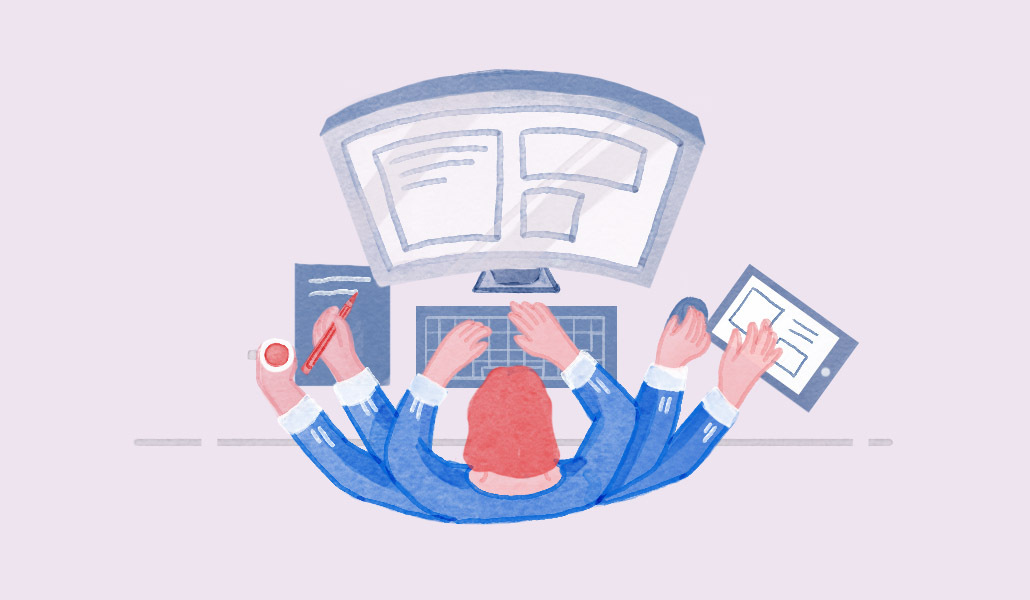Business owners who employ others leads to greater personal well-being, new research finds

Is working for yourself really the best gig? It could be — especially if you employ other people. Business owners with employees scored higher than all other groups when it came to satisfaction with their income and general well-being at work, and in their personal lives, according to new research from Gallup.
Nearly 70% of owner-employers said they considered their future and current lives to be “thriving,” compared to about half of all other workers, that survey found, which included responses from about 10,000 working adults in the U.S. Owner-employers are also highly engaged in their work, which makes sense — over 75% said they believe they get to do what they do best, get to be creative and get along with colleagues.
That’s true for Sam Budd, who started his own marketing agency, Buddy Media, around the start of the pandemic and now has 20 employees. “Being in control of building a team around you with people that you care about, that you respect, setting a culture that you believe in, and not being told what you have to do or how you have to do it to an effect, just feels empowering,” Budd said. “I’ve got an incredible satisfaction and kind of gratefulness for being a leader,” he said.
But entrepreneurship itself does not translate into those positive outcomes — in fact, the survey found that people who are self-employed, but have no one they employ themselves, had the lowest scores among all groups. That was a somewhat surprising finding to Jonathan Rothwell, a principal economist at Gallup and author of the report.
“There’s been quite a lot of emphasis on encouraging people to become entrepreneurs, but I’ve never really seen an acknowledgement of the very large distinction between being an employer-owner and a non-employer owner. I would have thought there’d be more similarities especially in the measures of well-being,” Rothwell said. “In both cases, you’re sort of your own boss, you’ve got a great deal of discretion and control.”
The gap might be explained by the fact that employing others is an ode to business success itself — “the entrepreneurial pathway to wealth and well-being often requires that a business be large or profitable enough to be able to employ others,” according to the report.
At the same time, employing others comes with some downsides that workers in other arrangements don’t have to face. The financial burden of paying for staff benefits, especially the increasing cost of healthcare, legal obligations, and the possibility of having to lay staff off are some unique challenges owner-employers have to deal with.
Particularly post-pandemic, mental health and cost of living challenges have been a key concern for all employers, especially those with close and strong relationships with those they supervise. For Budd, being an empathetic leader is key, but it’s also difficult to balance and create enough space for himself to not absorb the emotions of his staff.
“If you are running the correct company with the correct culture, people become your friends. And they have their own challenges, whether that’s personal, or it’s financial worries, or it’s mental health issues. All of these elements ultimately do sit with you because you’re watching them struggle, watching them go through that. It impacts their performance and the performance and ability to deliver as a business, and ultimately you are responsible,” he said.
“It does feel like every single month you’ve got 20 people outside of your friends and family sphere that you’ve already got that you need to make sure are happy, healthy, and really enjoying what they’re doing,” he said.
About two-thirds of U.S. workers work for someone else, and business owners with employees only account for 2.4% of all working adults in the U.S., according to the Gallup report. Business owners without employees account for about 7% of workers.
Take Rob Garcia, an Air Force veteran who founded his own PR agency from home and started SHIFT magazine in 2016. He doesn’t have any full-time employees but contracts out a lot of work, he said, like the design for his magazine’s covers, and has guest writers. Otherwise though he’s responsible for pretty much everything else.
“That’s the worst thing to be, because your skill set can’t be amazing at all of it,” he said. “They say you need to hire out what you’re bad at or what you don’t want to do, but in the early days, you don’t have enough cash flow to hire those experts. That’s the trickiest part of entrepreneurship is getting over that hump,” he said.
But he still loves his job and the work he gets to do everyday from his high-rise apartment in San Diego, he said. He plans to eventually hire full-time staff, but will start with part-time, and is also opening up an internship program for local university students, he said.


